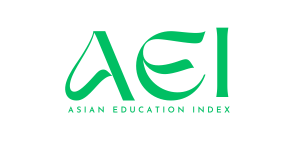Problems of Categorization in Comparative Typology
Keywords:
Comparative typology, categorization, grammatical category, linguistic typology, language features, theoretical approaches, terminology, computational linguistics.Abstract
Comparative typology is a branch of linguistics aimed at identifying common and distinctive features of languages through systematic comparison. Central to this field is the categorization of languages based on grammatical, lexical, phonological, and syntactic criteria. However, this categorization process encounters several challenges. These include the unique characteristics of individual languages, difficulties in distinguishing between universal and language-specific features, diversity of theoretical frameworks, and terminological inconsistencies. Additionally, limited linguistic data and the subjective nature of criteria complicate research efforts. This paper provides a comprehensive analysis of categorization problems in comparative typology and proposes theoretical and methodological approaches to address them. The potential of modern computational linguistic tools to assist in resolving these issues is also discussed.
References
1.
Greenberg, Joseph H. (1963). Some Universals of Grammar with Particular Reference to the Order of Meaningful Elements. In J. H. Greenberg (Ed.), Universals of Language (pp. 73–113). MIT Press.
2.
Croft, William. (2003). Typology and Universals (2nd ed.). Cambridge University Press. 3. Comrie, Bernard. (1989). Language Universals and Linguistic Typology (2nd ed.). University of Chicago Press.
4. Jakobson, Roman. (1962). Selected Writings, Vol. 2: Word and Language. Mouton. 5. Haspelmath, Martin. (2007). Against Markedness (and What to Replace It With). Journal of Linguistics, 43(1), 25–70.
6.Bickel, Balthasar. (2011). Typology in the 21st Century: Major Developments and Challenges. Linguistic Typology, 15(1), 83–109.
7.Avazova Lobar Buriyevna “DEVELOPING STUDENTS ORAL AND WRITTEN SKILLS THROUGH PEER ASSESSMENT”.











